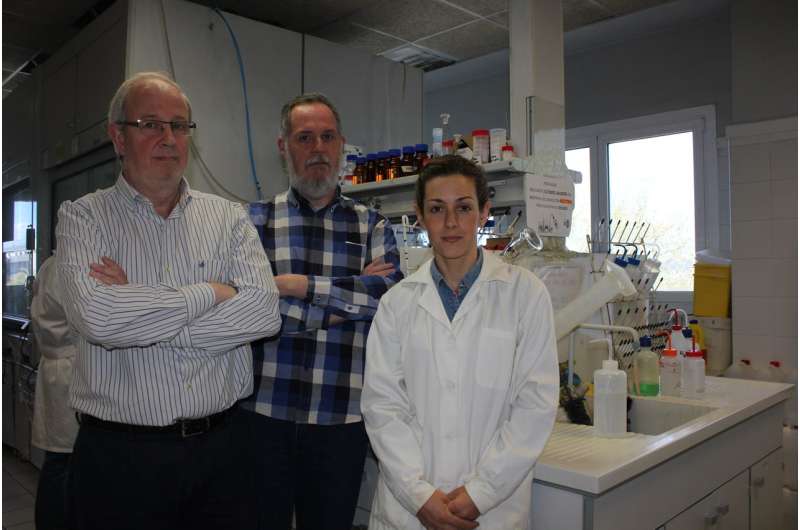C9h peptide capped to induce cancer cell apoptosis

Researchers at Valencia's Universitat Politècnica (UPV), the Valencia-CSIC Biomedicine Institute (IBV) and the Bioengineering, Biomaterial and Nanomedicine CIBER (CIBER BBN) have developed a new system to induce the death of carcinogenic cells.
The system consists of nanocapsules carrying a peptide, a small amino acid chain released in a controlled manner, and leads to the affected cell's apoptosis. "Until now, we have worked with cellular models and obtained promising results," explains Ramón Martínez Máñez, head of the UPV's Molecular Recognition and Technological Development Inter-university Institute and head scientist at the CIBER-BBN.
The main novelty of the work performed by UPV, IBV and CIBER BBN researchers is the capping of the peptide. According to Martínez Máñez, the current problem with the use of these molecules in clinical therapies is its high decomposition rate and low bioavailability. In fact, a large number of therapeutic peptide products don't obtain the approval of regulatory bodies due to these limitations.
"Blood plasma houses more than 120 proteins, among which are numerous enzymes which decompose molecules. Capping peptides in mesoporous silica particles could become a general application method to administer them in an effective and controlled way in clinical practice. In this case, when the nanoparticle enters the cells, the polylysine that covers the nanoparticles decomposes and allows for the peptide to be released, which induces the death of the carcinogenic cell," explains Jerónimo Bravo, researcher at the IBV.
The use of nanocapped peptides would also make it possible to decrease the toxicity of the therapy, as they are less aggressive than the cytotoxics currently used to induce carcinogenic cell apoptosis. "Furthermore, the capping makes it possible to use less medicine and therefore reduce secondary effects endured by the patients," adds Jerónimo Bravo.
Now that it has been tested in the laboratory, the next step is to evaluate its effectiveness in animal models.
More information: Cristina de la Torre et al. ϵ -Polylysine-Capped Mesoporous Silica Nanoparticles as Carrier of the C 9h Peptide to Induce Apoptosis in Cancer Cells, Chemistry - A European Journal (2017). DOI: 10.1002/chem.201704161
Journal information: Chemistry – A European Journal
Provided by Asociacion RUVID





















